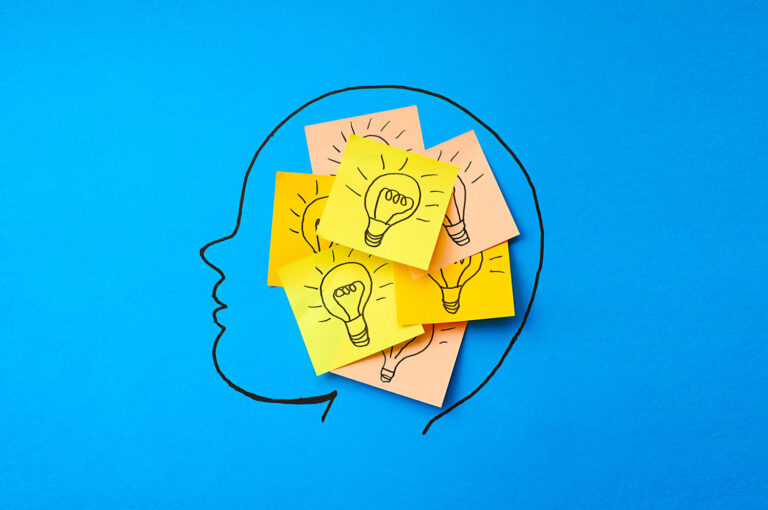Table of Contents
Learning can be a challenging process, but by utilizing efficient memory techniques it can become faster and easier. Whether you are studying for an exam or just trying to improve your overall knowledge base, having effective memorization skills is key.
With the right approach, you can quickly learn information in a way that will stick with you for much longer than if you were to simply read or listen to the material once. This article will explore various memory techniques that have been proven to be highly beneficial when it comes to learning new information quickly and effectively.
Well, discuss how these tips can help optimize your study time and make learning more enjoyable and rewarding in the long term.
Utilizing Mnemonics

Mnemonics is a powerful tool that can help you remember and learn information faster and easier. They use techniques such as association, visualization, and repetition to create connections between ideas or concepts to aid in memorization.
Utilizing mnemonics can be especially beneficial for those who struggle with traditional memorization methods due to their ability to break down complex material into easily digestible chunks. One of the most common mnemonic strategies is using acronyms; this involves taking all first letters from related words or phrases and creating an acronym that serves as an easy way to recall the material.
Likewise, rhyming phrases also work well when trying to commit information to memory because they make it more interesting by introducing elements of music and rhythm into the learning process. Additionally, another effective method is creating stories – these allow you to link seemingly unrelated pieces of data together in a creative way so that it’s easier for your brain to store them for later recall.
All of these approaches enable learners not only to save time but also to retain knowledge much better than if they were trying regular studying methods alone.
Chunking and Clustering Information

Chunking and clustering information is an important memory technique that can help make learning faster and easier. Breaking down a large amount of data into manageable chunks makes it much easier to comprehend, remember, and recall.
Clustering helps to group related ideas so they are easier to store in our long-term memories. Both techniques allow us to quickly identify key points in the material we’re studying, summarize them more easily, and apply them when needed.
Using chunking while studying allows for the ability to absorb larger amounts of information without feeling overwhelmed or confused as you would if trying to learn everything at once. Breaking down complex topics into smaller sections reduces the cognitive load on your brain by focusing on one small piece at a time rather than attempting memorization all at once.
After breaking up the material into digestible pieces with chunking, clustering those pieces further helps make connections between them for a deeper understanding of the concepts being studied. When using these techniques together it is possible to understand more complex subjects quicker while also making sure that what you’ve learned stays in your memory longer due to its improved structure within your mind’s eye. Chunking and clustering provide an efficient way of structuring new knowledge which makes it simpler for the brain to process during study sessions as well as recall later when needed – making learning both faster and easier!
Developing Visual Associations

Developing visual associations can be an effective and efficient memory technique for making learning faster and easier. Visualizing concepts, ideas or information helps to capture key points by creating a mental image in the mind that is easier to recall than trying to remember words alone.
By pairing images with concepts, it becomes simpler to access information quickly when needed without having to wade through unnecessary details or retrace steps of understanding. Doing this creates a powerful form of memorization that is more likely to lead to successful learning outcomes.
Engaging both creative and analytical thinking during this process also allows users to better comprehend material on multiple levels rather than just remembering facts at face value. As such, developing visual associations can greatly improve the speed at which we learn new things while also helping us retain our knowledge longer into the future.
Implementing Memory Games

Implementing memory games into a learning routine is an effective way to encourage the development of efficient memory techniques. Memory games provide an engaging and interactive way for people to practice memorizing information, such as words or facts.
By playing these kinds of activities regularly, you can improve your ability to recall knowledge quickly and accurately over time. Memory games come in many different forms, from traditional card-matching exercises to digital brain-training apps.
These activities may require users to repeat sequences correctly, identify patterns among objects or pictures, or remember items that have been removed from view. While some versions are designed for individual players others involve multiple participants working together towards a common goal.
One great thing about memory games is that they can be tailored according to the preferences and interests of each learner. For example, if someone enjoys sports they could try playing a game where they must match up names with teams; while someone who loves literature might enjoy an activity involving famous authors and their works.
Alternatively, there are also plenty of online resources providing free printable templates which can be used by educators when teaching students how to use efficient memory techniques in class settings. No matter what type of approach you decide on though, learners must take regular breaks between sessions so as not to tire themselves out too much mentally – this will help them stay more focused during the next round! With thoughtful implementation of memory games into your study plan then you should soon find yourself mastering complex topics with ease!
Conclusion
Memory techniques are an effective and powerful way to make learning easier and faster. Gizmo is a great tool for anyone who wants to take advantage of these techniques, as it can help you better organize your thoughts and memories to more easily recall when needed. Memory techniques can be used in many different ways, from helping students remember facts for exams to assisting professionals with complex tasks.
By utilizing memory techniques, we can unlock our full potential and become more productive than ever before.

